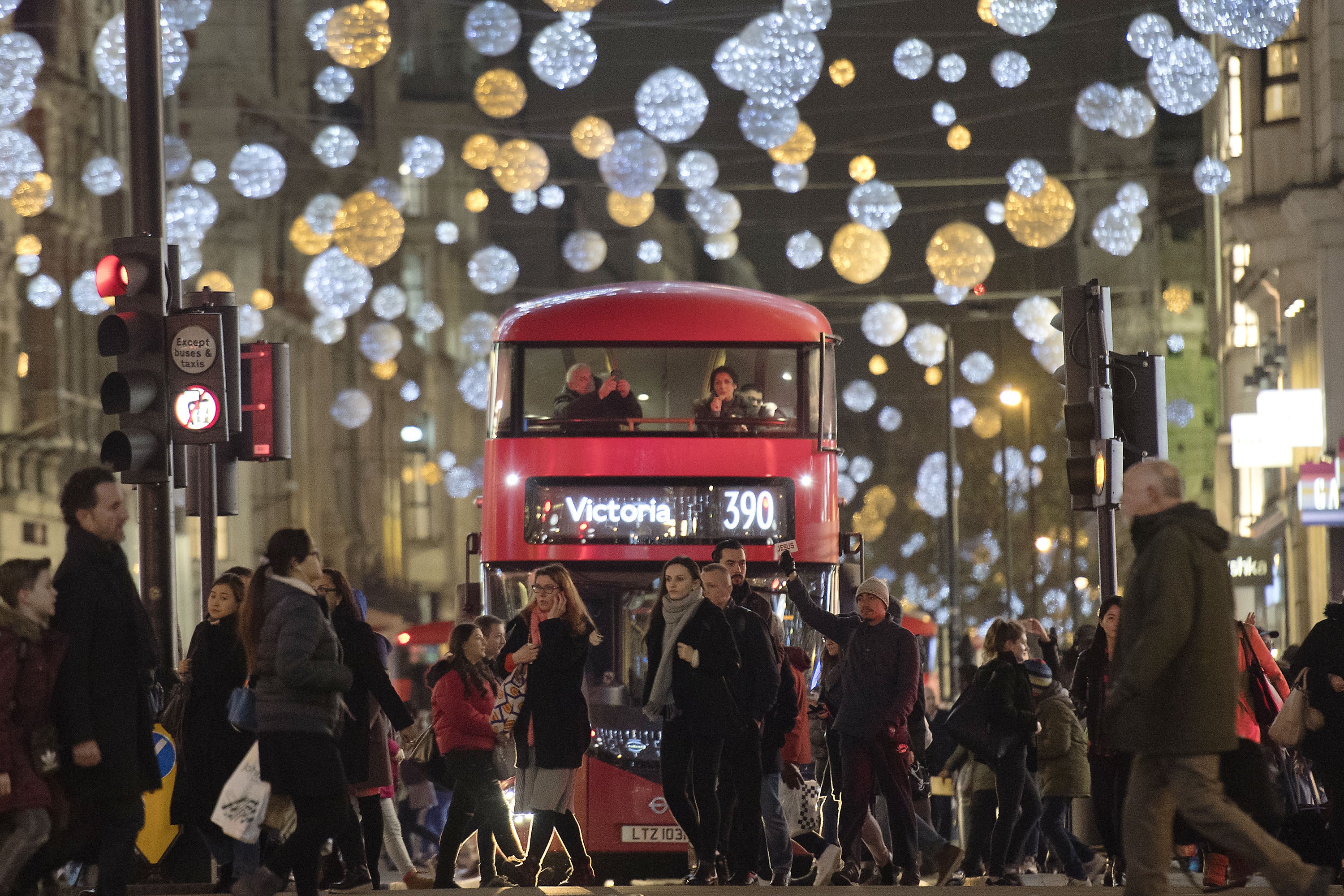How far will UK adults travel this Christmas?
UK adults will travel almost 100 miles to visit friends and family, poll suggests

Your support helps us to tell the story
From reproductive rights to climate change to Big Tech, The Independent is on the ground when the story is developing. Whether it's investigating the financials of Elon Musk's pro-Trump PAC or producing our latest documentary, 'The A Word', which shines a light on the American women fighting for reproductive rights, we know how important it is to parse out the facts from the messaging.
At such a critical moment in US history, we need reporters on the ground. Your donation allows us to keep sending journalists to speak to both sides of the story.
The Independent is trusted by Americans across the entire political spectrum. And unlike many other quality news outlets, we choose not to lock Americans out of our reporting and analysis with paywalls. We believe quality journalism should be available to everyone, paid for by those who can afford it.
Your support makes all the difference.Nine in 10 British adults look set to travel more than 300 miles to celebrate Christmas, according to a poll.
In total, 339 miles are typically travelled during the month of December alone, as people make the most of their freedom and go to parties, pantos and plays.
This equates to a collective 10.5 billion miles nationwide, across the 31 million motorists who will take to the road.
Almost 100 miles will be driven visiting friends and family, while a further 110 miles will be covered shopping for food and gifts.
To highlight the increase in pollution levels due to high traffic volume during the Christmas period, energy provider EDF created a Christmas Tree-V on Glasgow’s Buchanan Street – powered by an electric vehicle and featuring lights which change colour when polluted fumes are particularly bad.
The light display has been programmed to reflect live pollution data and change colour from green to white, once the World Health Organisation annual mean limit for average pollution levels is exceeded.
Philippe Commaret, managing director for customers at EDF, which commissioned the research of 2,000 adults who participate in the festivities and own a car, said: “Santa may not ride an electric sleigh but increasing numbers of motorists are choosing to drive electric vehicles, with COP encouraging more people to consider the carbon impact of their travel this Christmas.
“Thanks to our specially designed Christmas Tree-V, visitors to Glasgow city centre will be able to see pollution levels change throughout the day as the lights change, helping people to see the impact of their transport choices for themselves.”
Of those travelling in the month of December, 18 per cent will drive to see festive markets and 15 per cent usually go to see the Christmas lights.
Buying the Christmas tree, a trip to the theatre, and visits to see new releases at the cinema are also common journeys made this time of year.
The average motorist will make five shopping trips during the Christmas period – with 64 per cent of adults making the extra effort to visit high streets over online to buy their presents.
And out of those who are visiting stores for gifts, many prefer to buy items in person – with 26 per cent doing so as part of their Christmas tradition.
Of those who are using a car to travel, 46 per cent said it is much more convenient to use during Christmas time.
And four in 10 don’t have to worry about carrying lots of shopping back home if they drive in, according to the OnePoll figures.
One quarter of adults who drive would rather use their car to travel as there are limit public transport alternatives.
But, of those who were aware of the Cop26 conference which took place in Glasgow, several had said that it made them more likely to consider their carbon footprint when they travel - and potentially switch to an alternative mode of transport to cut carbon emissions.
A spokesperson for EDF energy added: “We’re committed to making it as easy as possible for motorists to make the switch to an EV and cut their carbon emissions, from car leasing deals to home charging points and 100 per cent renewable zero carbon EV tariffs.”
SWNS
Join our commenting forum
Join thought-provoking conversations, follow other Independent readers and see their replies
Comments